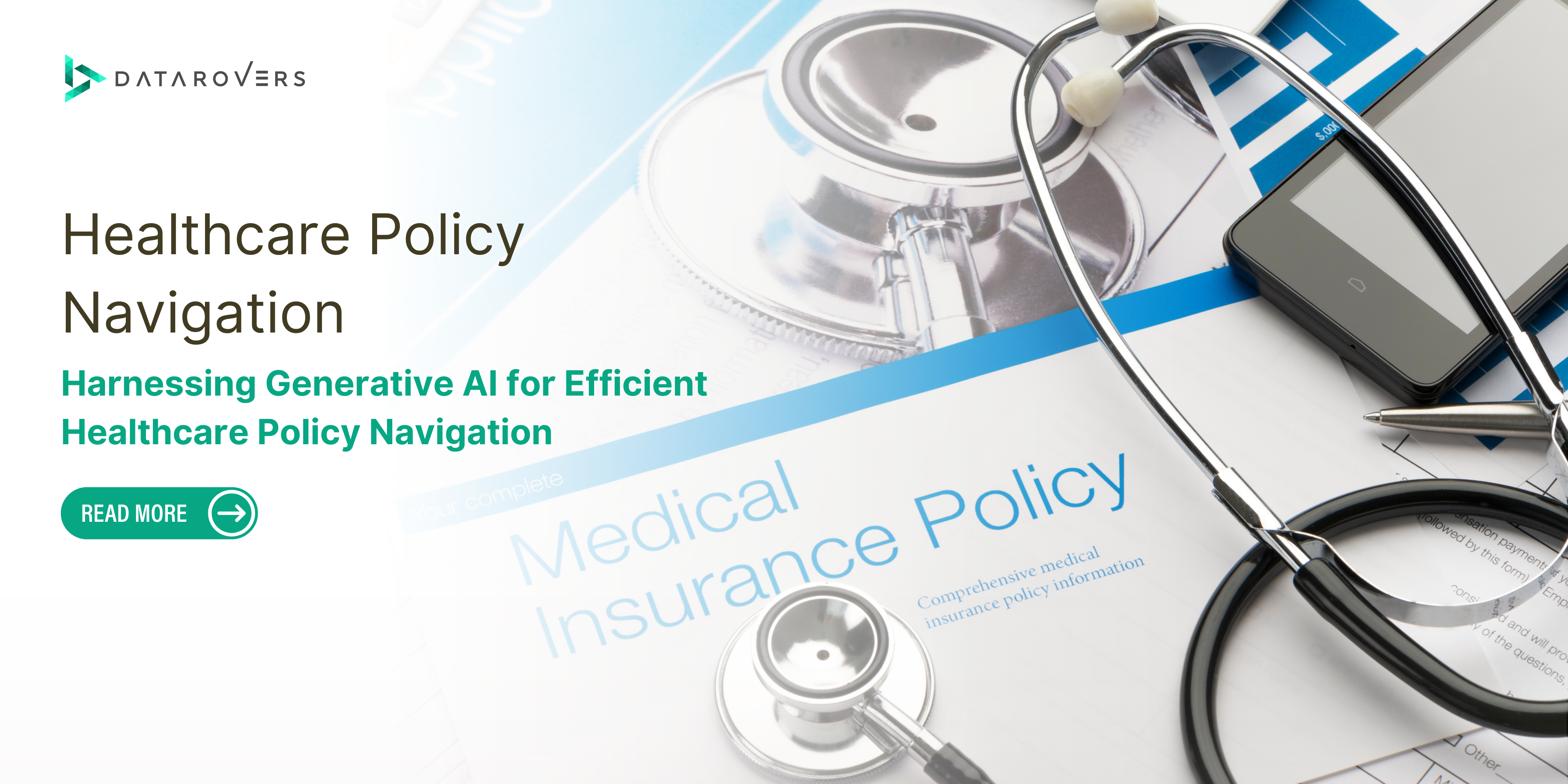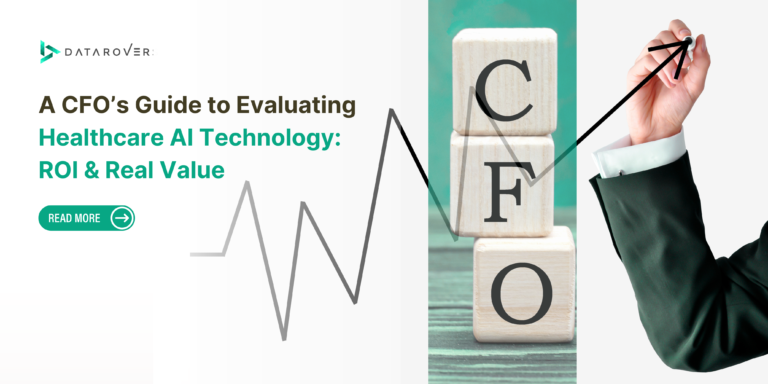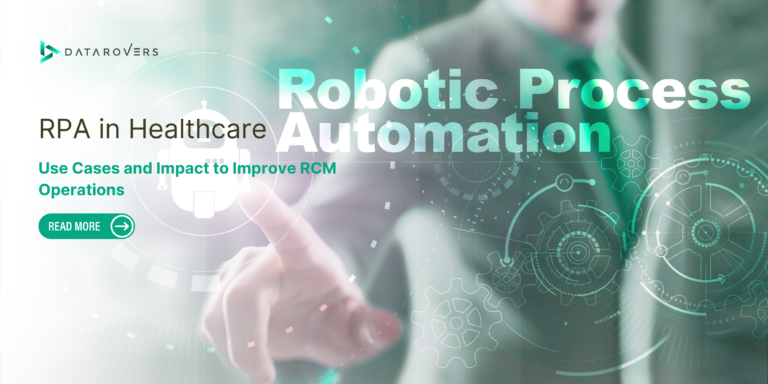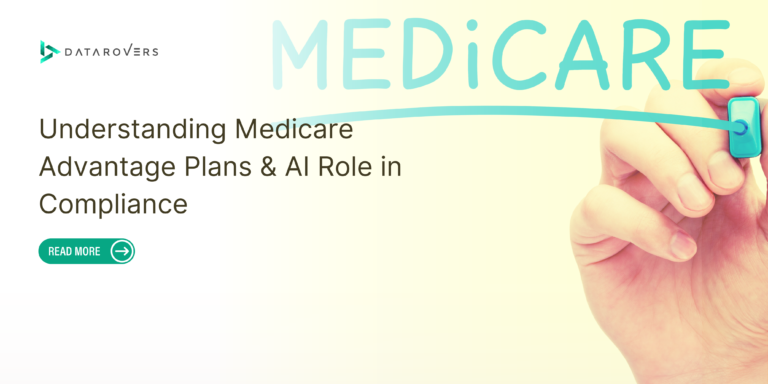Overview
Healthcare professionals often need help navigating the complex healthcare policies, which are filled with technical jargon, legal terms and continuous changes. Fortunately, the introduction of generative AI (Gen-AI) is transforming how healthcare professionals can access and comprehend payer policies. This advancement is leading to improved efficiency and better patient care. In this blog, we will explore the healthcare payor policy navigation complexities and how generative ai making it a thing of past.
Decoding the Complexity
Healthcare policies are notoriously complex, containing many rules, conditions, and clauses that can vary significantly between payers. Healthcare providers must understand these policies accurately to ensure they can offer the right services to their patients and secure appropriate reimbursement. Gen-AI comes into play here, acting as a powerful tool to decode this complexity swiftly.
Challenges in Current Healthcare Policy Navigation
Navigating healthcare policies manually is time-consuming, with the risk of human error. The lack of uniformity across different payer policies further complicates this task, making it difficult for healthcare providers to stay updated with the latest guidelines and regulations. This complexity often results in administrative bottlenecks, impacting the efficiency of healthcare delivery.
How Gen-AI Makes a Difference?
Benefits |
Outcomes |
| Instant Knowledge Retrieval | Gen-AI cuts through massive healthcare policy databases to deliver specific information to healthcare professionals instantly. No more sifting through manuals – AI finds relevant details in seconds. |
| Clear Policy Understanding | Gen-AI deciphers complex legal jargon in healthcare policies, translating it into clear and understandable language. This simplifies policy comprehension for providers, reducing confusion and potential disputes with insurers. |
| Real-Time Policy Updates | Healthcare policies and coverage are constantly evolving. Gen-AI systems update automatically, ensuring healthcare professionals always have access to the latest information. This minimizes the risk of relying on outdated or incorrect data. |
| Personalized Insights | Utilizing machine learning, Gen-AI generates customized insights specific to a healthcare practice or specialty. This means providers receive information directly relevant to their unique needs and patient population. |
| Enhanced Patient Focus | By streamlining administrative tasks, Gen-AI frees up valuable time for healthcare professionals. This allows them to focus on what matters most – delivering quality patient care. This shift can lead to improved health outcomes and greater patient satisfaction. |
Integration with Existing Healthcare Systems
Integrating Gen-AI with existing healthcare systems, such as electronic health records (EHRs) and other healthcare IT infrastructure, is crucial for seamless adoption. Ensuring compatibility and facilitating smooth data exchange between AI systems and current platforms can enhance the overall efficiency and effectiveness of policy navigation.
Integration Aspect |
Description |
| Compatibility with EHRs | Gen-AI systems must be compatible with electronic health record systems for seamless integration. |
| Data Exchange | Facilitating smooth data exchange between AI systems and healthcare IT infrastructure is essential for efficiency. |
| User Training and Adoption | Healthcare professionals should be trained on how to use Gen-AI systems effectively to maximize their benefits. |
Data Security and Privacy Considerations
With the integration of Gen-AI into healthcare policy navigation, maintaining patient data confidentiality and complying with regulations like HIPAA is paramount. Gen-AI systems must be designed with robust security measures to protect sensitive information and ensure that data privacy standards are upheld.
Future Trends in AI and Healthcare Policy Management
The future of healthcare policy navigation looks promising with the continuous advancements in AI technology. Hence, the trends such as predictive analytics, and natural language processing, are expected to further enhance the capabilities of Gen-AI in managing healthcare policies. These innovations will likely lead to more precise, efficient, and secure policy navigation processes.
Predictive Analytics
Using AI to predict future policy changes and their impacts on healthcare practices.
Natural Language Processing
Enhancing the ability of AI systems to understand and process complex healthcare policy language.
Embracing the Future
Integrating Gen-AI into healthcare is not just about technology; it’s about transforming the way care is delivered. Therefore, harnessing the power of AI to navigate healthcare policies efficiently, healthcare professionals can focus more on what matters most – providing quality care to their patients. As we move forward, embracing Gen-AI will be key to navigating the complexities of healthcare with confidence and proficiency.
How DataRovers Policy Copilot Can Help?
Streamlining Policy Access
DataRovers Policy Copilot provides instant access to specific healthcare policy details, saving time and reducing manual effort.
Authentic Database
The tool leverages a reliable and comprehensive database of healthcare policies, ensuring accurate and trustworthy information.
Real-Time Updates
DataRovers Policy Copilot ensures healthcare professionals have the most current policy information, minimizing the risk of using outdated data.
Conclusion
The benefits of Gen-AI in navigating healthcare policies are clear. From instant access to simplified information and real-time updates to customized insights and enhanced patient care, Gen-AI is set to revolutionize the healthcare industry. By adopting this technology, healthcare providers can overcome the challenges of policy navigation and focus on delivering exceptional care to their patients.




